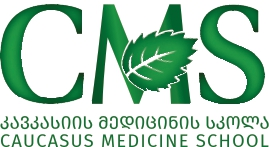The international journal "Bulletin of the Georgian National Academy of Sciences" published a scientific article "Development of Social Health Insurance in Georgia: Challenges and Lessons”
The authors of the paper are Professor Tengiz Verulava of Caucasus University and Avtandil Jorbenadze, General Director of the Chapidze Emergency Cardiology Center.
The Bulletin of the Georgian National Academy of Sciences is indexed in the SCOPUS (Elsevier) International Science Database with a CiteScore of 0.8. See. https://www.scopus.com/sourceid/21100199522
In 1995, a model of social health insurance (Bismarck) was introduced in Georgia, which was conditioned by many factors: introduction of market mechanisms in the country, aspiration to mobilize additional funds for the health sector, search for sustainable financing, cost containment, transparency, Bismarck's success in developed European countries, distrust of highly centralized state systems and government interventions after the collapse of the Soviet Union. The main advantage of switching to the social health insurance model is related to the equal and equitable distribution of responsibilities for human health between the state, the employer and the employee. Instead of the state, the social insurance fund had to purchase medical services for the insured. According to the reform, the purchase and supply of medical services should be separated, which was seen as a mechanism to improve the efficiency of medical services. The state was relieved of its role as a direct provider of medical services. It had to maintain its impact on the health care system through strong regulatory, financial and licensing mechanisms. In 2004, the Georgian government abandoned the introduction of a social security system and switched to the general tax financing (Beveridge) model, which excludes the principle of insurance because the state plays a dominant role, and instead of insurance, health care is funded entirely from the state budget. The same thing continues today. Given that the social insurance system is the best way to mobilize additional funds for the health sector and consequently sustainable funding, it is advisable to promote the development of social insurance in the country. The healthcare sector needs reform consistency, continuity and heredity.
See the article link: http://science.org.ge/bnas/vol-16-1.html
Tengiz Verulava, and Avtandil Jorbenadze. Development of Social Health Insurance in Georgia: Challenges and Lessons. Bulletin of the Georgian National Academy of Sciences, vol. 16, no. 1, 2022.


